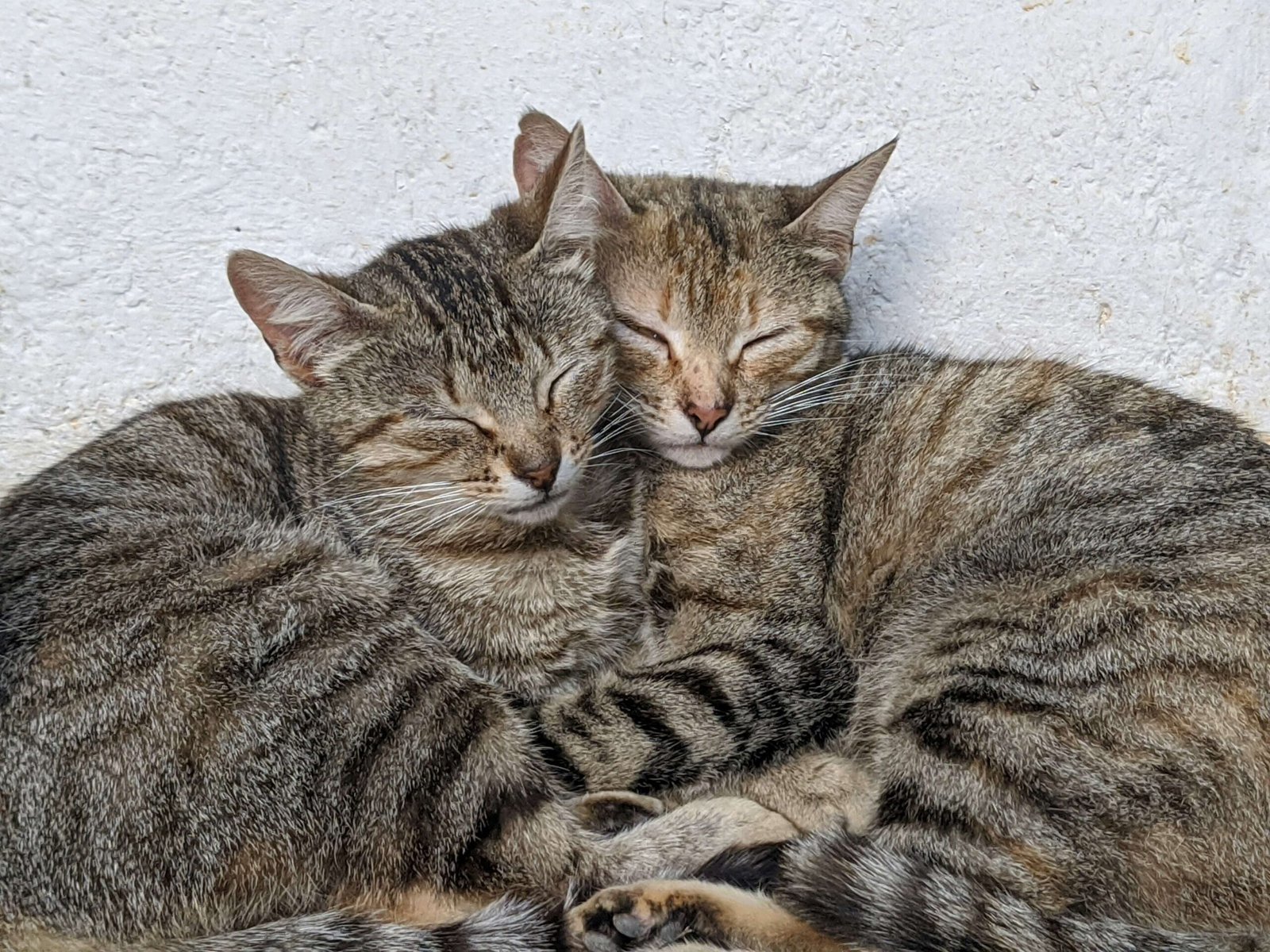Can I Take a Stray Cat to the Vet for Free? Understanding Your Options
Finding a stray cat in need can tug at your heartstrings, especially if it appears injured, sick, or malnourished. But what if you’re unsure about the costs involved in taking them to the vet? Many compassionate animal lovers wonder, “Can I take a stray cat to the vet for free?” While veterinary care often comes with expenses, there are ways to access affordable or even free services for stray cats. In this blog post, we’ll explore your options, from local shelters and rescue organizations to low-cost clinics and community programs. By the end, you’ll have a clear understanding of how to provide care for a stray cat without breaking the bank—and perhaps even save a life in the process.
Options for Free or Low-Cost Veterinary Care for Stray Cats
If you’ve decided to help a stray cat, there are several avenues you can explore to ensure they receive the care they need without straining your finances. Here’s a breakdown of potential options:
Local Animal Shelters
Many shelters offer free medical evaluations and treatments for stray cats brought to them, as part of their mission to care for abandoned animals.Rescue Organizations
Non-profit rescue groups often have partnerships with veterinarians to provide free or discounted care for stray cats in need.Low-Cost Clinics
Some communities have low-cost veterinary clinics that offer reduced fees for spaying, neutering, vaccinations, and basic care.Community Programs
Certain cities or towns run programs funded by donations or government grants to assist with stray animal care.Veterinary Charity Events
Occasionally, vets host free clinics or charity days where they provide essential services to stray or homeless animals.
By exploring these resources, you can find affordable—or even free—ways to ensure the stray cat receives the care it deserves.
Steps to Prepare Before Taking a Stray Cat to the Vet
Before heading to the vet, it’s important to prepare properly to make the visit as smooth and effective as possible. Here’s what you should do:
Check for Identification
Look for a collar or microchip to determine if the cat belongs to someone before assuming it’s a stray.Secure the Cat Safely
Use a sturdy carrier or box to transport the cat, ensuring they feel secure and cannot escape during the trip.Document Observations
Take note of any visible injuries, unusual behavior, or symptoms like lethargy or limping to share with the vet.Gather Supplies
Bring along essentials like a blanket, water, or treats to keep the cat calm during the visit.Contact Local Resources First
Reach out to shelters or rescues beforehand to confirm their policies and availability for stray cats.
Proper preparation ensures the vet visit goes smoothly and maximizes the chances of getting the cat the help it needs.
Check this guide 👉What Do Stray Cats Eat? Best 7 Expert Tips!
Check this guide 👉Name for Your Stray Cat: Best 7 Expert Tips!
Check this guide 👉When a Stray Cat Chooses You: Best 7 Expert Behavior Tips!

Free or Low-Cost Services | What They Typically Cover |
|---|---|
Local animal shelters | Basic exams, vaccinations, spaying/neutering |
Rescue organizations | Emergency care, foster placement, adoption |
Low-cost veterinary clinics | Routine check-ups, minor surgeries |
Community-funded programs | Food assistance, flea treatment, deworming |
Veterinary charity events | Free vaccines, microchipping, health checks |
How to Handle Costs If Free Care Isn’t Available
While free or low-cost options exist, sometimes you may need to cover some expenses yourself when caring for a stray cat. Here are practical tips to manage these costs:
Prioritize Essential Treatments
Focus on critical needs like vaccinations, wound care, or parasite treatment rather than non-urgent procedures.Set Up a Payment Plan
Some veterinarians allow payment plans, enabling you to spread the cost over time.Crowdfund for Expenses
Platforms like GoFundMe can help raise funds from friends, family, or compassionate strangers.Apply for Financial Aid
Certain organizations offer financial assistance specifically for pet care emergencies.Volunteer in Exchange for Services
Some shelters or vets may accept volunteer work in exchange for reduced or waived fees.
With a bit of creativity and resourcefulness, you can find solutions to manage the costs of caring for a stray cat.
Signs a Stray Cat Needs Immediate Veterinary Attention
When dealing with a stray cat, it’s crucial to recognize signs that indicate they require urgent medical care. Here’s what to look for:
Visible Wounds or Bleeding
Open cuts, punctures, or significant blood loss demand immediate attention to prevent infection or further harm.Difficulty Breathing
Labored or rapid breathing could signal respiratory distress or other serious conditions.Lethargy or Weakness
A cat that seems unresponsive or unable to move may be suffering from dehydration, illness, or injury.Swollen Abdomen
An enlarged belly could indicate internal issues such as fluid buildup or organ problems.Severe Eye or Ear Infections
Redness, discharge, or swelling in the eyes or ears may require prompt treatment to avoid complications.
Addressing these symptoms quickly can make all the difference in saving the cat’s life and improving their chances of recovery.
Ways to Foster a Stray Cat After Vet Care
Once a stray cat has received veterinary care, fostering them temporarily can provide a safe and nurturing environment while they recover or await adoption. Here are some steps to consider:
Create a Quiet Space
Set up a small, quiet room or area where the cat can feel secure and rest comfortably.Provide Basic Supplies
Ensure you have essentials like food, water, a litter box, and cozy bedding to make the cat feel at home.Monitor Their Health
Keep an eye on their behavior and recovery progress, reporting any concerns to the vet promptly.Socialize Gradually
Allow the cat to adjust to your presence slowly, avoiding overwhelming interactions until they feel comfortable.Prepare for Adoption
Work with local shelters or rescue groups to find a permanent home if you’re unable to adopt the cat yourself.
By fostering a stray cat, you give them a second chance at life while preparing them for a loving forever home.
Common Challenges When Helping Stray Cats
While helping a stray cat is rewarding, it can also come with challenges that require patience and problem-solving. Here are some common hurdles you might encounter:
Aggressive Behavior
Some stray cats may act defensively due to fear or past trauma, making handling difficult.Limited Resources
Finding affordable or free vet care can be challenging in certain areas, requiring extra effort.Time Commitment
Caring for a stray cat often demands significant time for vet visits, fostering, and rehabilitation.Legal Restrictions
Local laws or housing rules may limit your ability to take in or care for stray animals.Emotional Strain
Bonding with a stray cat only to part ways later can be emotionally taxing for some caregivers.
Despite these challenges, the rewards of helping a stray cat often outweigh the difficulties, especially when you see their transformation and happiness.
How to Raise Awareness About Stray Cats in Your Community
Raising awareness about stray cats can inspire others to help and create a supportive network for these vulnerable animals. Here are some effective ways to spread the word:
Share Stories on Social Media
Post heartwarming stories, photos, or updates about stray cats you’ve helped to engage your community.Host Fundraisers
Organize events or online campaigns to raise funds for stray cat care and local shelters.Collaborate with Local Shelters
Partner with shelters to educate people about adopting or fostering stray cats in need.Distribute Flyers or Posters
Create informative materials about spaying/neutering, fostering, and available resources to reduce stray populations.Encourage Responsible Pet Ownership
Promote the importance of spaying/neutering pets and proper identification to prevent more strays.
By raising awareness, you can inspire collective action and create a safer, more compassionate environment for stray cats in your community.
Frequently Asked Questions About Taking a Stray Cat to the Vet
Can I take a stray cat to the vet without being its owner?
Yes, most vets will accept stray cats, though policies may vary by clinic.
What if the stray cat is aggressive or scared?
Use a secure carrier and let professionals handle the cat safely during the exam.
Will the vet charge me for treating a stray cat?
Some vets may offer discounts or direct you to low-cost options, but it depends on their policy.
How do I know if the cat has already been vaccinated?
A vet can perform tests or administer vaccines if needed, regardless of prior history.
What happens after the vet treats the stray cat?
The cat may be released back to you, taken in by a shelter, or put up for adoption, depending on the situation.
Final Thoughts: Making a Difference for Stray Cats in Need
Helping a stray cat by taking them to the vet is a compassionate act that can change—or even save—a life. While the question, “Can I take a stray cat to the vet for free?” may not always have a simple answer, there are numerous resources and strategies available to ease the financial burden. Whether through shelters, low-cost clinics, or community programs, you can ensure the cat receives the care it needs while staying within your means. Remember, every small effort counts, and your kindness can make a world of difference for an animal in need. Together, we can create a safer, healthier environment for stray cats everywhere.
Dog Tapeworm Life Cycle: Best 7 Expert Tips! – Learn how tapeworms infect dogs, spot symptoms, and break the cycle with expert prevention strategies.
Anxious Cat Body Language: Best 7 Expert Tips! – Learn to spot signs of stress, understand triggers, and help your cat feel safe and relaxed.
Anxious Dog Body Language: Best 7 Expert Tips! – Learn to spot signs of anxiety, respond effectively, and help your dog feel safe and secure.
Is Breeding Dogs Bad? Best 7 Expert Tips! – Explore the ethics, benefits, and risks of dog breeding to make informed decisions for a better future.





